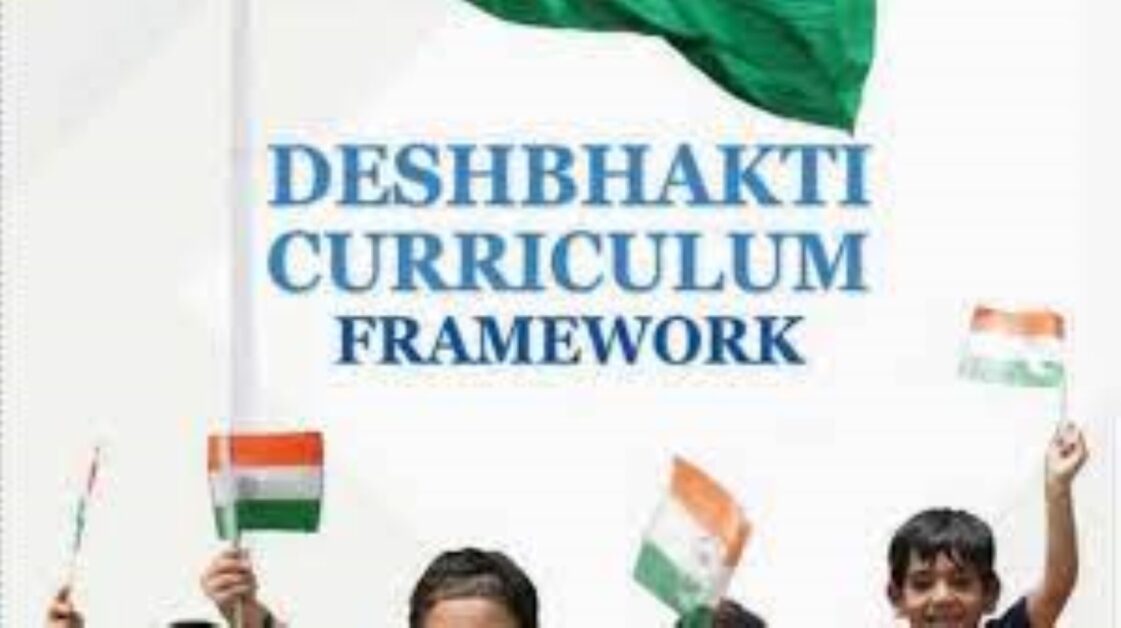
On the eve of the 75th Independence Day, Delhi Chief Minister Arvind Kejriwal announced the deployment of the “Deshbhakti Curriculum”, which he said would instill patriotism in young minds. The goal of the program is to impart values, skills and behaviors to students so that they are equipped to “participate effectively in a culture of democracy”. The framework has three main objectives:
- Instill a sense of pride in the country,
- raise awareness of the responsibilities of the country; and
- The commitment to make a sacrifice for the country.
The Deshbhakti Curriculum Committee presented the framework after detailed discussions and extensive consultations over the past two years. It was approved by the board of directors of the State Council for Educational Research and Training on August 6. The program “also aims to develop a deep sense of respect for constitutional values and seeks to bridge the gap between values and action.”
The implementation methodology will be child-centered through a five-step process:
- Classroom discussion initiated by the teacher;
- Class discussion between students facilitated by the teacher;
- Classroom activities generally in the form of group work;
- Homework to relate to the family; and
- Community & Self-reflection.
The Deshbhakti Curriculum will be implemented in schools in Delhi from September 27, to mark the birthday of freedom fighter Bhagat Singh. The Curriculum will be activity-based and aims to instill patriotism in children.
Kejriwal also said that free yoga classes will begin in Delhi at parks and community halls in various parts of the city on October 2. Instructors are registered for the sessions and RWAs can contact the government to begin classes at their facilities.
He also highlighted governance changes in the form of faceless services at regional traffic offices and through home delivery services. Speaking about the Deshbhakti Curriculum, Kejriwal said that parents will also play a vital role in helping their children get through it.
The Chief Minister said that the Deshbhakti Curriculum will help fulfill the dreams of freedom fighters and that the celebration of Independence Day will no longer be symbolic in schools, but will now have substantial meaning.
Furthermore, speaking about the Deshbhakti Curriculum, he said that the government is fully committed to celebrating the spirit of independence every day and has learned a lot during the process of developing the curriculum framework.
Arvind Kejriwal announced the vision for the Deshbhakti curriculum during the 73rd Independence Day celebrations in 2019. The Deshbhakti Curriculum Committee presented the framework that was approved by the SCERT Board of Directors on August 6. Deshbhakti’s curriculum is to guide children. The SCERT director presented a copy of the Deshbhakti Curriculum framework to Chief Minister Kejriwal. He was accompanied by Deputy CM Manish Sisodia and senior officials from the Department of Education.
Sisodia, introducing the Deshbhakti program to the CM, said that Deshbhakti Curriculum will be the beacon of teaching and learning in Delhi’s public schools.
The Delhi government’s Deshbhakti Curriculum framework aims to develop a deep sense of respect for constitutional values and seeks to bridge the gap between values and action, according to a government statement. The framework recognizes that although students learn various aspects of Indian democracy and the Constitution as part of their existing curriculum; these are currently limited to bringing academic subjects to learn and test on exams.
The main objective of the Deshbhakti Curriculum is to develop students’ self-confidence, awareness, respect for constitutional values, and problem-solving skills, and empower them to face challenges and make changes to move the country forward.
Through this program, eight learning outcomes are sought, namely:
- Self-awareness,
- Self-confidence,
- Problem solving,
- Practice of constitutional values,
- Pluralism and diversity,
- Environmental Sustainability,
- Ethics of Social behavior,
- Collaboration, and
- Social & Civic responsibility. .
The evaluation of this program will be through self-assessment, peer review and teacher assessment, according to the statement. The three themes of the Deshbhakti Curriculum are knowledge, values and behavior.

More Stories
Delhi University Releases Admission Schedule for 5-Year BA LLB & BBA LLB Programmes for 2025–26
DU UG Admission 2025 | Key Dates, Process, and New Changes Explained
ICAI CA Foundation Result May 2025 Declared: Complete Details Inside